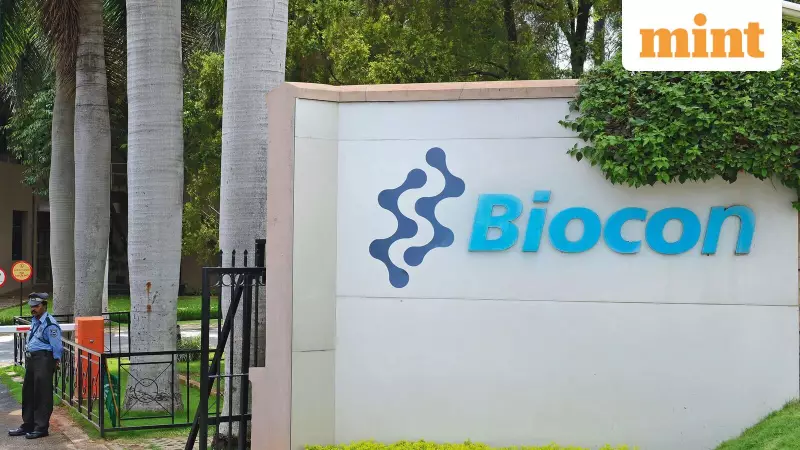
Indian biopharmaceutical giant Biocon Ltd is strategically positioning itself to capitalize on the explosive global demand for weight-loss and diabetes medications, with its generics business already showing significant growth fueled by recent drug launches.
The company's CEO and Managing Director, Siddharth Mittal, in a recent conversation, highlighted that drugs like semaglutide and liraglutide are the central pillars for near-term expansion in its generics segment. Biocon is leveraging its deep expertise, existing global partnerships, and vertical integration to secure a substantial portion of the rapidly expanding worldwide market.
Financial Performance and Drug Launches
This strategic focus is already yielding positive results. In the second quarter of the fiscal year 2025-26, Biocon's generics business was a standout performer. It contributed 18% to the overall revenue, which itself saw a robust 21% year-on-year increase to ₹4,389 crore. The generics arm's revenue surged by 24% to ₹774 crore, a growth propelled largely by the launch of generic liraglutide in markets like the US and Europe.
Mittal specifically pointed to liraglutide as a critical growth driver, especially in Europe where the company supplies the product to its partners. Biocon has successfully launched generic liraglutide in Europe and the UK and is anticipating regulatory approvals in other key markets, including the United States and South America, later this financial year.
Looking ahead, the company has set its sights on semaglutide, filing for regulatory approval in countries like Canada and Brazil, where the drug is expected to go off-patent next year. Mittal expects these approvals to come through in the 2026-27 fiscal year.
Navigating a Competitive Landscape
Biocon is not alone in this race. Several other Indian and global generic drug manufacturers are also preparing to launch their versions of semaglutide. However, Mittal believes Biocon holds a competitive edge.
"We know what it takes to bring such complex drugs to the market," he stated, emphasizing that the company's vertical integration—controlling its own drug substance, drug product, and complex delivery devices—gives it a significant advantage. Being the first to launch a generic liraglutide in the UK further solidifies its position.
The global market for GLP-1 receptor agonists, the class of drugs that includes both liraglutide and semaglutide, is projected to be a colossal $95 billion by 2029-30, according to Goldman Sachs.
Strengthening the Balance Sheet and Biosimilars Business
The company also reported a net profit of ₹85 crore for the quarter, a notable turnaround from a net loss of ₹16 crore in the same period last year. A key development was the cleanup of its balance sheet following a ₹4,500 crore Qualified Institutional Placement (QIP) in June 2025.
This fundraising allowed Biocon to settle structured debt obligations with Goldman Sachs and Kotak Mahindra Bank, which will lead to an annualized interest cost saving of roughly ₹300 crore, benefiting the profit before tax line from next year. This financial maneuvering also enabled the parent company to increase its stake in its biosimilars subsidiary, Biocon Biologics, from 71% to 79%.
The biosimilars business itself continues to be the company's powerhouse, accounting for 61% of overall revenue at ₹2,721 crore, marking a 25% year-on-year increase. The division has launched four biosimilars in major global markets this fiscal year and plans to launch Denosumab, a drug for osteoporosis and cancer, later this year.
Mittal also commented on recent draft guidelines from the US FDA aimed at accelerating biosimilar development, noting that with 10 biosimilars already on the market, Biocon is well-placed to benefit from simplified processes and the potential for interchangeability, which allows for easier substitution at the pharmacy level.
Reflecting this positive outlook, Biocon's share price closed 5.22% higher on the National Stock Exchange, significantly outperforming the Nifty Pharma index.






